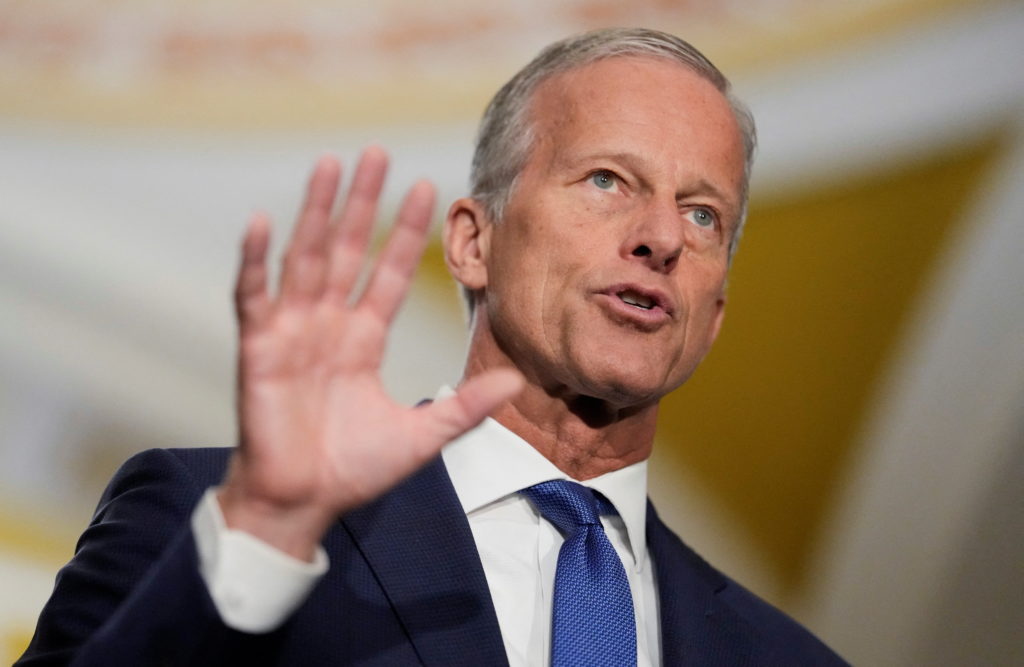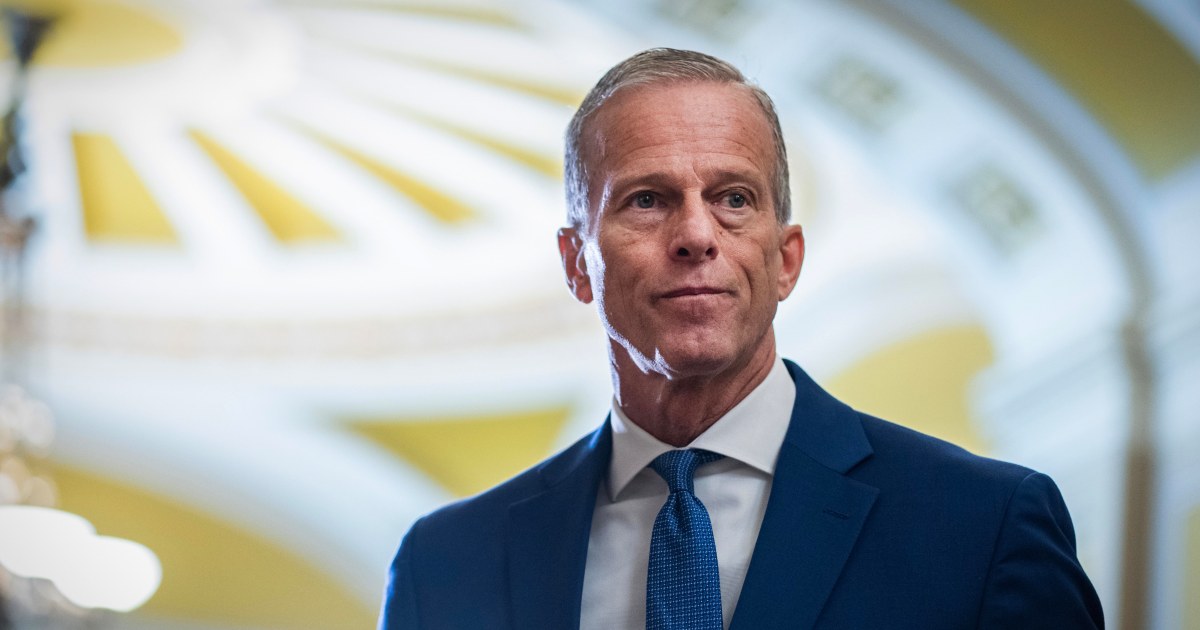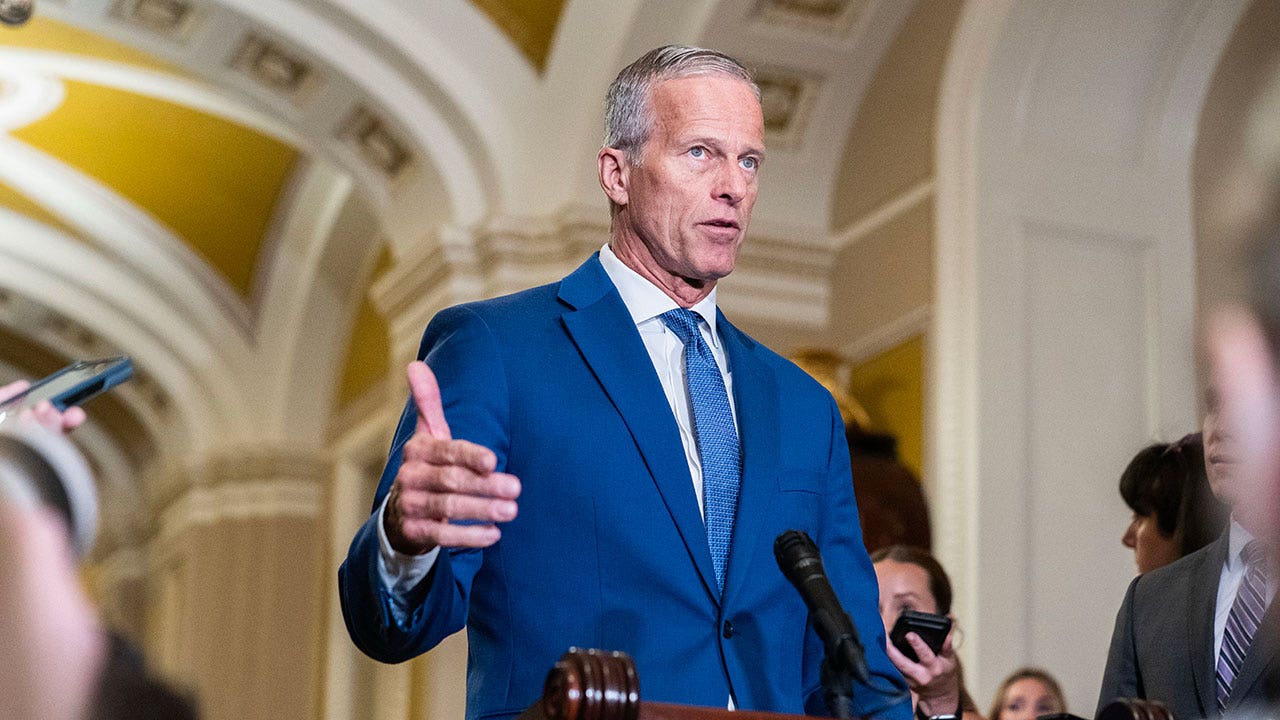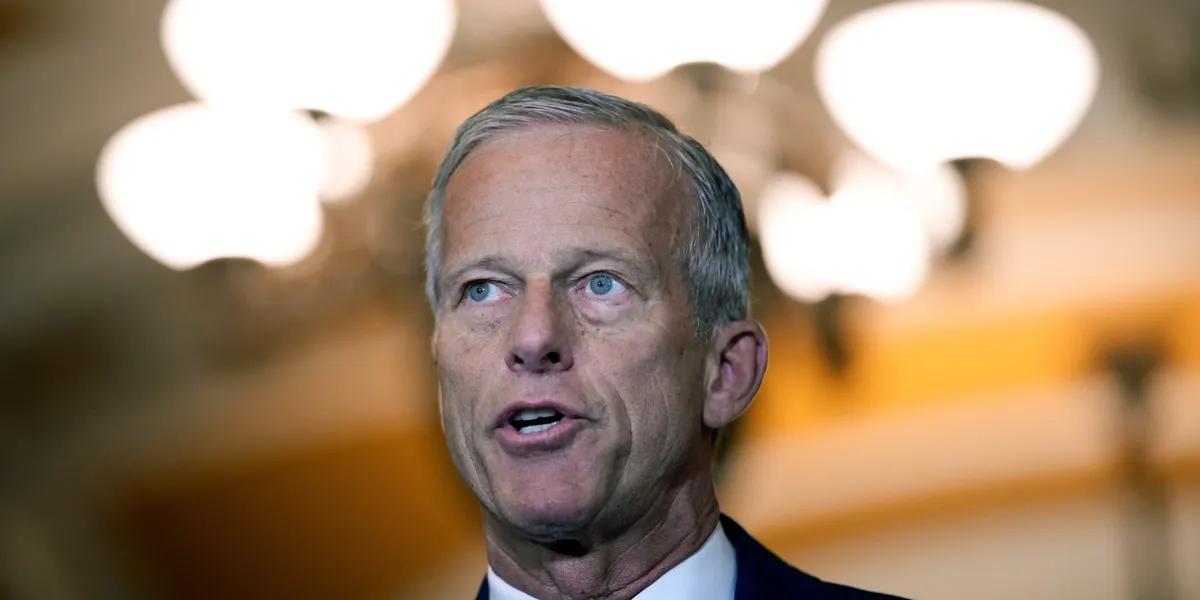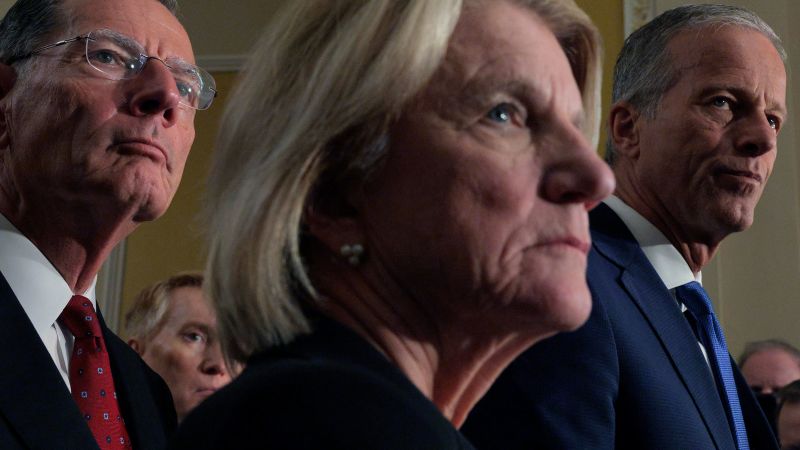Senate Republicans Eye Rules Change to Fast-Track Trump Nominees
Senate Majority Leader John Thune is initiating a rules change to expedite President Trump's executive branch nominees. This aims to confirm appointments in batches, bypassing Democratic delays and clearing a backlog.
Subscribe to unlock this story
We really don't like cutting you off, but you've reached your monthly limit. At just $5/month, subscriptions are how we keep this project going. Start your free 7-day trial today!
Get StartedHave an account? Sign in
Overview
- Senate Majority Leader John Thune is initiating a process to modify Senate rules, aiming to accelerate the confirmation of President Trump's executive branch nominees.
- The proposed change would allow nominees to be voted on in large groups, significantly reducing the need for numerous individual roll call votes and overcoming Democratic delays.
- This initiative is designed to clear a substantial backlog of presidential appointments, potentially avoiding over 600 separate votes for various executive positions.
- These rule changes specifically target executive branch positions, explicitly excluding lifetime judicial appointments and Cabinet member confirmations from the expedited process.
- Senate Republicans are considering this 'nuclear option' to speed up the voting process, with Thune ready to file a resolution seeking bipartisan support for the change.
Report issue

Read both sides in 5 minutes each day
Analysis
Center-leaning sources frame the Republican rule change as a justified response to Democratic obstruction of presidential nominees. They emphasize the negative impact of Democratic delays on the administration, portraying Republicans as forced to act. Sources also interpret Democratic motives as struggling to oppose Trump and being pushed by voters, rather than solely focusing on stated concerns about nominee quality.
Articles (6)
Center (2)
FAQ
Senate Republicans are proposing to change Senate rules to allow multiple executive branch nominees to be confirmed in bulk, via a single vote, bypassing the need for individual roll call votes and overcoming Democratic delays.
The rule change targets sub-Cabinet level executive branch nominations and explicitly excludes lifetime judicial appointments and Cabinet member confirmations.
Republicans seek to clear a substantial backlog of President Trump's executive branch nominees, which has resulted in over 600 pending votes, to avoid prolonged delays caused by Senate Democrats' opposition and procedural hurdles.
While some Democrats oppose the wholesale blockade of nominees, there is some division; the proposal mirrors a process Democrats had previously considered, so Senate Republicans hope to gain bipartisan support, though opposition from some members remains possible.
The 'nuclear option' refers to changing Senate rules by a simple majority vote, thereby overriding the usual supermajority requirement to end debate or change procedures, allowing Republicans to confirm nominees despite Democratic opposition.
History
- 2M

 3 articles
3 articles
